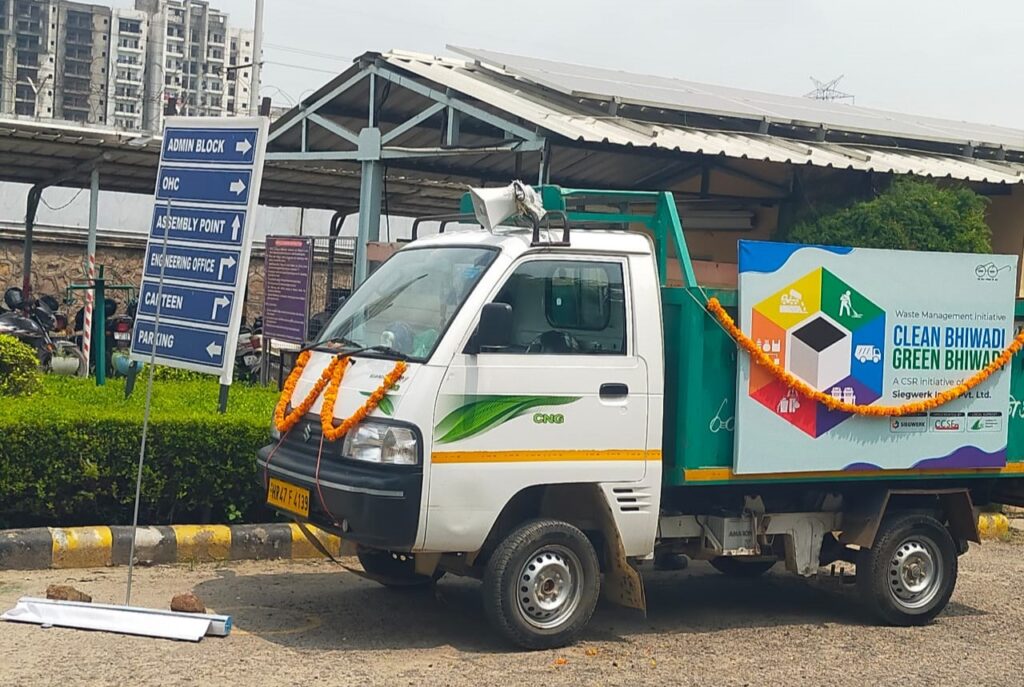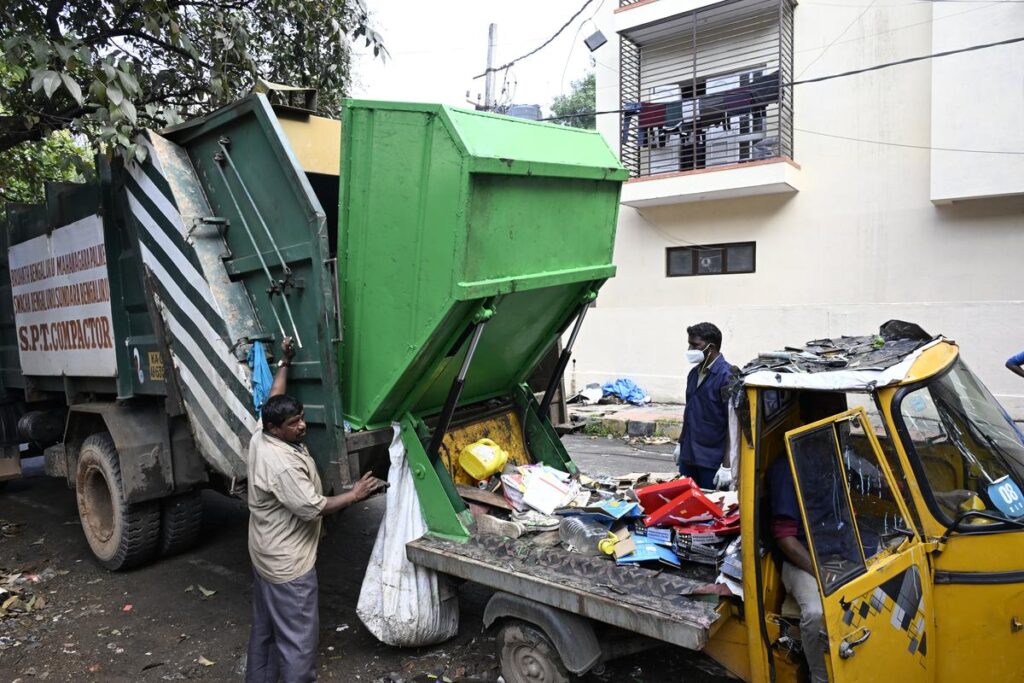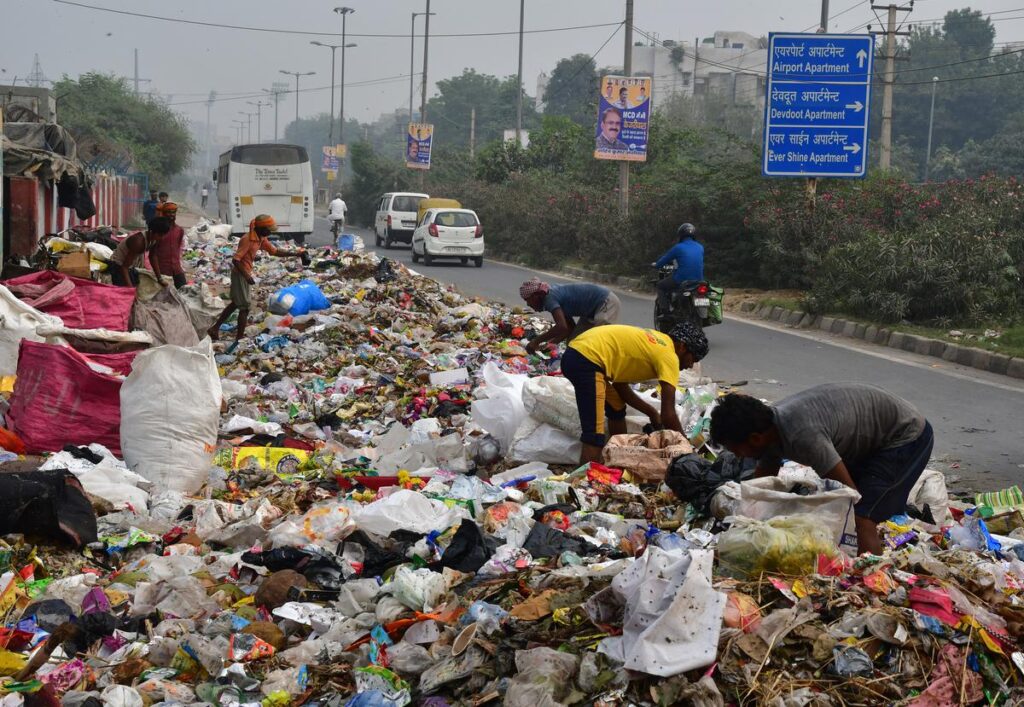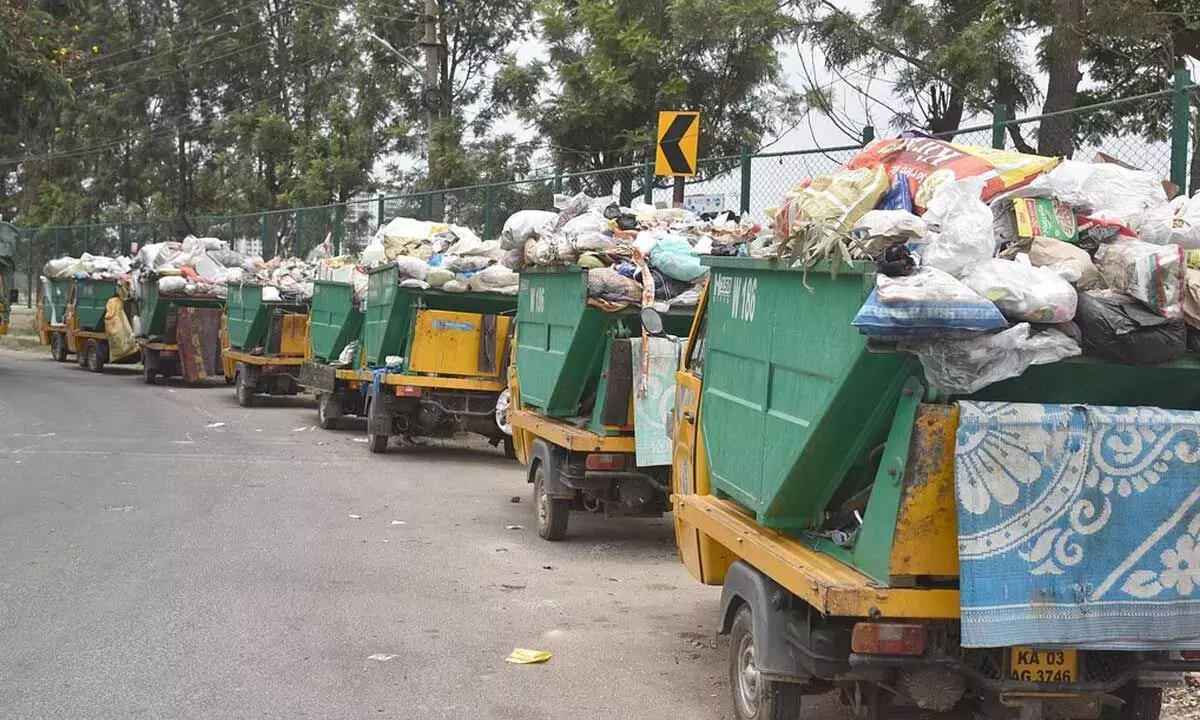Turning Trash into Treasure: Mission for Sustainable Waste Management
In a rapidly urbanizing world, waste is no longer just a by-product—it’s a growing crisis. From overflowing landfills to polluted rivers, India generates over 150,000 tonnes of solid waste daily, and much of it goes untreated or ends up harming our environment and public health. But amidst this challenge lies opportunity—the opportunity to rethink waste as a valuable resource.
At Janitra Eco Energia Foundation, we’re on a mission to reshape how society views and handles waste. Our sustainable waste management initiatives aim not only to reduce landfill burden but to empower communities, protect ecosystems, and create green jobs through responsible recycling, composting, and upcycling.






The Waste Problem: What’s Going Wrong?
While waste is inevitable, mismanagement is not. Here’s the ground reality:
- A majority of Indian households don’t practice waste segregation.
- Informal waste workers remain underpaid, unprotected, and unrecognized.
- Hazardous and biomedical waste often gets mixed with regular trash.
- Plastics, e-waste, and organic waste all require different handling—but often end up in the same bin.
- Most local landfills are overflowing, emitting methane and leachate that pollute air, water, and soil.
The result? Deteriorating public health, growing environmental degradation, and massive economic losses.
Our Vision: Waste to Wealth
At Janitra, we believe that waste is a resource in the wrong place. Our vision is to create a zero-waste society where materials are reused, recycled, and reintegrated into the economy—benefiting both people and the planet.
We follow the 4R principle:
✅ Reduce unnecessary waste
✅ Reuse what can serve again
✅ Recycle effectively
✅ Recover value through composting and upcycling
Key Initiatives Under Our Waste Management Program
1. Community Segregation Drives
We organize awareness camps and door-to-door campaigns promoting segregation at source into dry, wet, and hazardous waste. Residents are provided with color-coded bins and training on how to separate kitchen waste, plastics, paper, and biomedical items.
2. School Waste Education Programs
Children are powerful changemakers. Through our Eco-Clubs, we train students to conduct waste audits, make eco-bricks, compost at school, and raise awareness within their families.
3. Support for Informal Waste Workers
We recognize and uplift the silent heroes—waste pickers and scrap workers—by:
- Distributing gloves, masks, trolleys, and safety gear.
- Offering skill training in waste sorting and upcycling.
- Linking them to municipal support and social schemes.
4. Urban Composting Units
In collaboration with RWAs and panchayats, we set up decentralized compost pits and bio-digesters for kitchen waste. This nutrient-rich compost is then used for local gardens or sold to farmers.
5. Plastic-Free Villages and Markets
We identify zones to pilot “No Plastic” campaigns—offering cloth bags, conducting clean-up drives, and encouraging vendors to switch to eco-friendly packaging.
Upcycling: Creating Livelihoods from Leftovers
Through our Green Entrepreneurship Program, we support small businesses and SHGs (Self-Help Groups) to create and sell upcycled products—bags from old clothes, décor from plastic waste, and crafts from discarded paper.
This model:
- Creates income for women and youth
- Diverts waste from landfills
- Spreads the message of eco-creativity
Impact So Far
- 15,000+ households educated on segregation.
- 350+ informal workers trained and equipped.
- 10 composting units established in slums and schools.
- 8 SHGs supported in launching upcycled product lines.
- 20 awareness drives in schools, colleges, and marketplaces.
We’re currently active in parts of Rajasthan, Gujarat, and MP, with expansion plans in North-East and Maharashtra.
Why Sustainable Waste Management Matters
When we mismanage waste, we pay the price in health, climate disasters, and biodiversity loss. But when we handle it right, here’s what we gain:
- Cleaner Air & Water: No burning of waste or leachate seepage.
- Lower Carbon Footprint: Recycling uses less energy than manufacturing new items.
- Green Jobs: Waste-to-resource creates income opportunities.
- Soil Fertility: Compost restores soil health for farming.
- Public Health: Reduced pests, diseases, and garbage exposure.
It’s not just waste—it’s wealth in disguise.
How You Can Join Us
You don’t need to be an expert to support the cause. You just need to start with awareness and action. Here’s how you can help:
- Sponsor a Composting Unit for ₹10,000.
- Donate ₹2,000 to support one waste worker with tools and training.
- Organize a Clean-up Drive in your colony with our guidance.
- Volunteer to mentor students or join plastic-free campaigns.
- Purchase upcycled products from our SHG partners.
🌟 Every small step contributes to a massive shift.
Let’s Create a Zero-Waste Future, Together
Janitra Eco Energia Foundation is not just about managing waste—it’s about managing change. We’re showing India that clean, green, and inclusive development is possible through smart waste practices.
Waste is not a problem—it’s an opportunity waiting to be unlocked.
Are you ready to be a part of this transformation?

